Lord Of The Flies Analysis
| Title | Lord of the Flies |
| Author | William Golding |
| Publication date | 07/27/1959 |
| Publisher | Penguin Group |
| Page count | 224 |
| Genre | Allegorical fiction, Psychological thriller |
| Setting | A deserted tropical island |
| Protagonists | Ralph, Jack, Piggy, Simon |
| ISBN-13 | 9781101158104 |
Lord Of The Flies Characters
The Main Characters in the novel and their roles are:
- Ralph
- Description: A charismatic and fair-haired boy with a strong sense of leadership.
- Role: Elected as the leader of the boys stranded on the island.
- Traits: Charismatic, determined, fair-minded.
- Jack Merridew
- Description: A bold and dark-haired boy who initially serves as the leader of the choir.
- Role: Becomes the antagonist and leads a group of boys in rebelling against Ralph’s authority.
- Traits: Power-hungry, aggressive, manipulative.
- Piggy (real name: Simon)
- Description: An overweight and asthmatic boy with glasses and intellectual tendencies.
- Role: Serves as Ralph’s closest advisor and provides logical and rational ideas.
- Traits: Intelligent, logical, socially awkward.
- Simon:
- Description: A thoughtful and introverted boy who frequently retreats to a secluded area of the island.
- Role: Portrays a mystical and spiritual aspect, often providing profound insights.
- Traits: Compassionate, introspective, perceptive.
- Roger:
- Description: A sinister and sadistic boy who enjoys tormenting others.
- Role: Acts as Jack’s loyal follower and willingly participates in acts of violence.
- Traits: Cruel, brutal, sadistic.
Lord Of The Flies Themes
The themes in the novel are:
1. Human Nature and Civilization – The novel examines the inherent savagery and potential for evil within human nature and questions the role of civilization in suppressing these instincts.
2. Power and Control – The struggle for power and the corrupting influence it can have on individuals and societies is a central theme in Lord of the Flies.
3. Loss of Innocence – The story explores the loss of innocence experienced by the boys as they descend into savagery and abandon their childhood ideals.
4. Fear and Violence – Fear and violence play significant roles in the breakdown of the boys’ society and their descent into chaos.
5. Symbolism – The novel makes use of various symbols, such as the conch shell, the signal fire and the “beast,” to convey deeper meanings and explore the psychological and moral aspects of the characters.
Lord Of The Flies Summary
During a fierce war, an enemy shoots down a plane carrying a troop of British schoolboys over a remote tropical island. Ralph and Piggy, two of the lads, uncover a conch shell on the beach, and Piggy discovers it may be used as a horn to summon the other guys. Once gathered, the guys began picking a leader and organizing a rescue plan. They elect Ralph as their leader, and Ralph picks another child, Jack, to oversee the boys seeking food for the entire group.
Jack, Ralph, & another youngster, Simon, embark on an exploration of the island. Upon their return, Ralph declares, “We must light a signal fire to notify passing ships.” The lads successfully descended some dead wood by focusing sunlight via Piggy’s eyeglass lenses. However, the lads are more concerned with playing than keeping an eye on the fire, and the flames swiftly consume the forest. A big stretch of dead wood flames out of control & one of the group’s youngest members vanishes, likely burnt to death.
Initially, the boys love their time away from adults, spending most of their time swimming in the water and playing games. On the other hand, Ralph says they should keep the signal fire and construct shelter shelters. Although the hunters’ effort to capture a wild pig fails, its commander, Jack, gets increasingly consumed with hunting.
When a ship sails on the horizon one day, Piggy & Ralph are shocked to discover that the signal fire, the hunters’ job to keep burning, has gone out. Ralph, enraged, confronts Jack, but the hunter just arrived with his first kill & all the hunters appear to be possessed by a weird frenzy, reenacting the pursuit in a frantic dance. Piggy insults Jack, who punches Piggy in the face. In an attempt to restore order, Ralph blows the conch shell and warns the lads.
During the meeting, it is evident that some of the lads are becoming terrified. The most petite boys, known as “littluns,” have been plagued by nightmares since the beginning, and an increasing number of lads now think that a beast or monster is hiding on the island. The older lads try to persuade the other attendees at the conference to reason by questioning where such a creature might hide during the day. One of the littluns proposes that it hides in the water, frightening the entire group.
Soon after the meeting, combat between military jets occurs high over the island. The lads, who are sleeping below, are oblivious to the flashing lights and explosions in the skies. On the signal-fire mountain, a parachutist falls to his death. Sam and Eric, the twins in charge of keeping an eye on the fire at night, fall asleep and do not see the parachutist land. When the twins awaken, they see the massive shadow of his parachute and hear unusual flapping noises. They dreadfully run back to the camp, believing the island beast is nearby, and report that the beast has attacked them.
The guys plan a hunting excursion to find the monster—Jack and Ralph, who are becoming increasingly estranged, journey up the mountain. From a distance, they observe the silhouette of the parachute and assume it looks like a gigantic, deformed ape. The gang meets, and Jack and Ralph inform the others about the sighting. Jack accuses Ralph of being a coward and insists on his removal from office, but the other boys unanimously refuse to vote Ralph out. Jack storms along the beach, calling on all the hunters to join him. Ralph organizes the surviving guys to construct a new signal fire, but this time on the coastline instead of the mountain. They comply, but before finishing the assignment, most slip away to join Jack.
To commemorate the event, Jack names himself the head of the new tribe of hunters and organizes a hunt and a brutal, ritual murder of a sow. The hunters then decapitate the sow and give its head to the beast on a sharpened pole in the bush. Later, when Simon comes across the gory, fly-infested head, he has a terrifying vision in which the head appears to be speaking to him. The voice, which he imagines as the Lord of the Flies, tells him that Simon will never escape him since he resides within all men. Simon passes out. When he wakes up, he walks to the mountain and sees the deceased parachutist.
Simon walks to the shore to tell the others what he has seen, realizing that the beast exists not outwardly but within each lad. But the others are in the midst of a wild party—even Ralph and Piggy have joined Jack’s feast—and when they see Simon’s shadowy form emerge from the bush, they attack him with their bare hands and fangs and murder him.
Ralph and Piggy analyze their actions the following day. Jack’s hunters assault them and their few supporters, stealing Piggy’s spectacles. Ralph’s crew heads to Jack’s stronghold to persuade Jack to see reason, but Jack ties up Sam and Eric and attacks Ralph. During the following skirmish, one of the boys, Roger, rolls a rock down the mountain, killing Piggy & smashing the conch shell. Ralph narrowly makes it through a hail of spears.
Ralph hides for the rest of the night and the next day while other people hunt him like animals. Jack orders the other guys to set fire to the woodland to smoke Ralph out of his hiding spot. Ralph stays in the jungle, discovering and demolishing the sow’s head. However, he is eventually dragged out onto the shore, fully aware that the other boys will imminently arrive to kill him. When Ralph falls from weariness, he notices a British Navy officer standing above him. The officer’s ship became aware of the fire burning in the woods.
The other lads arrive at the beach and halt when they see the officer. The officer, taken aback by the sight of this gang of vicious, violent youngsters, begs Ralph to explain. Filled with relief at realizing his safety, Ralph experiences a surge of joy. However, as he reflects on the events on the island, tears well up in his eyes, and he begins to weep. The other lads start crying as well. The officer steps aside to allow the guys to restore their calm.
Lord Of The Flies Quotes
The famous quotes from “Lord Of The Flies” are:
- “Maybe there is a beast… maybe it’s only us.”
- “We did everything adults would do. What went wrong?”
- “The thing is – fear can’t hurt you any more than a dream.”
- “The greatest ideas are the simplest.”
- “The world, that understandable and lawful world, was slipping away.”
- “We did everything the grown-ups would have done. What went wrong?”
- “What are we? Humans? Or animals? Or savages?”
- “The mask was a thing on its own, behind which Jack hid, liberated from shame and self-consciousness.”
- “Fancy thinking the Beast was something you could hunt and kill! You knew, didn’t you? I’m part of you? Close, close, close! I’m the reason why it’s no go? Why things are the way they are?”
- “The world, that understandable and lawful world, was slipping away.”
- “We did everything adults would do. What went wrong?”
- “The greatest ideas are the simplest.”
- “Ralph wept for the end of innocence, the darkness of man’s heart, and the fall through the air of the true, wise friend called Piggy.”
- “I ought to be chief,” said Jack with simple arrogance, “because I’m chapter chorister and head boy. I can sing C sharp.”
- “We’ve got to have rules and obey them. After all, we’re not savages. We’re English, and the English are best at everything.”
Lord Of The Flies FAQs
What is Lord of the Flies actually about?
Lord of the Flies is about a group of boys stranded on an uninhabited island, exploring the inherent darkness and savagery of human nature.
What is the main message of the book Lord of the Flies?
The main message of the book “Lord of the Flies” is that the inherent evil within human nature can lead to chaos and destruction in society.
What grade is Lord of the Flies read?
Lord of the Flies is often read in high school, typically in grades 9 or 10, as part of literature or English curricula.
Is Lord of the Flies a tragedy?
Yes, the book “Lord of the Flies” can be considered a tragedy due to its exploration of the descent into savagery and the loss of civilization.
About the Author– William Golding
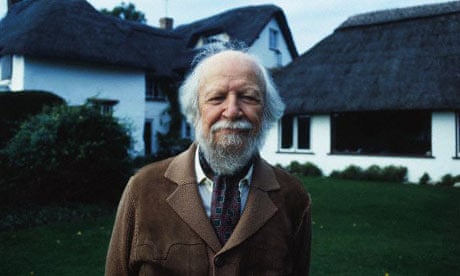
| Detail | Description |
|---|---|
| Full Name | William Gerald Golding |
| Date of Birth | September 19, 1911 |
| Place of Birth | St. Columb Minor, Cornwall, England |
| Date of Death | June 19, 1993 |
| Place of Death | Perranarworthal, Cornwall, England |
| Nationality | British |
| Occupation | Writer, novelist |
| Genre | Fiction, allegory, drama |
| Famous Works | -Lord of the Flies (1954) -The Inheritors (1955) -Pincher Martin (1956) -Free Fall (1959) |
| Literary Awards | Nobel Prize in Literature (1983), Booker Prize (1980) |
| Military Service | Royal Navy during World War II |
| Key Themes | Civilization vs. savagery, loss of innocence, human nature |

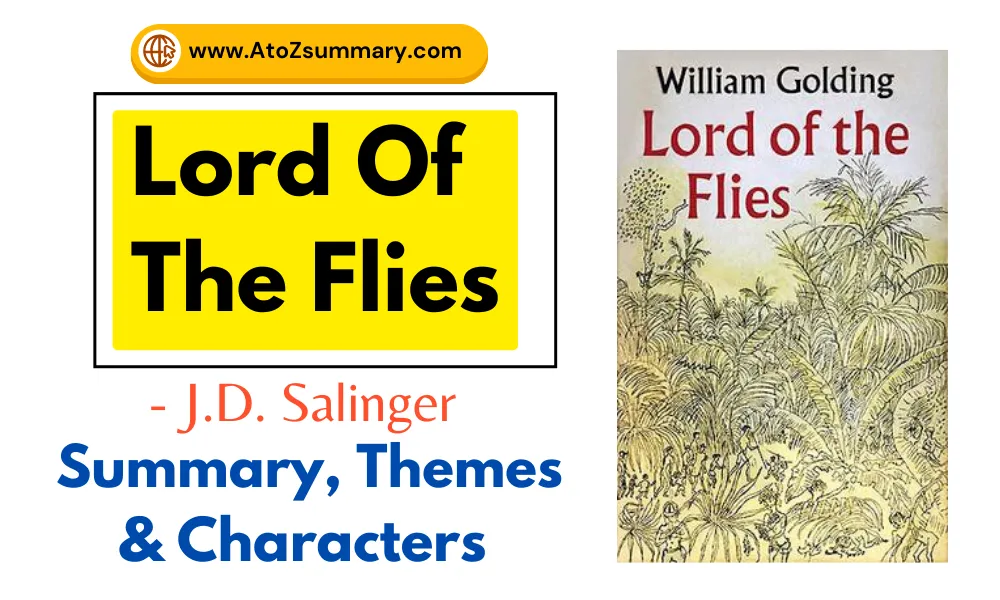
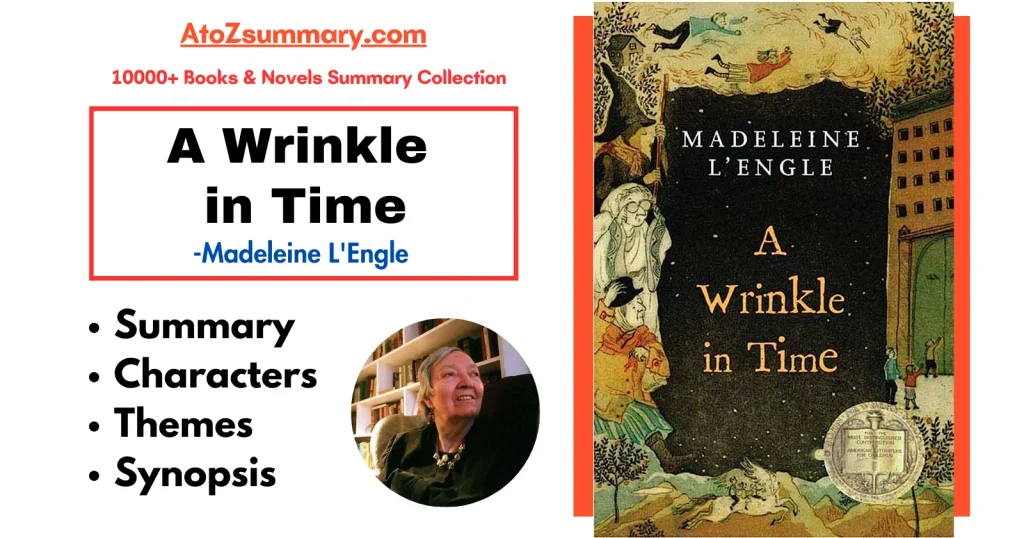


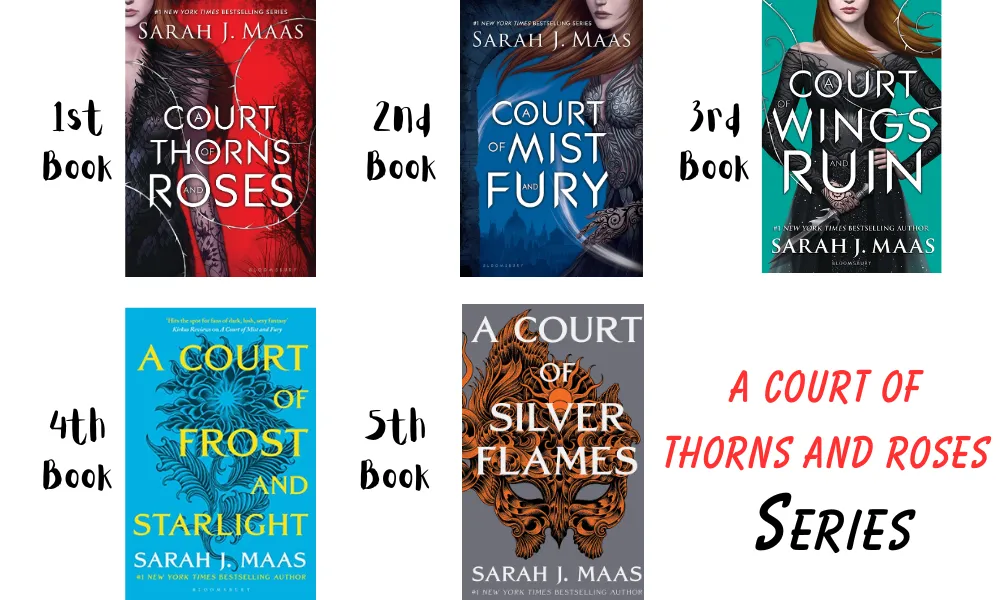

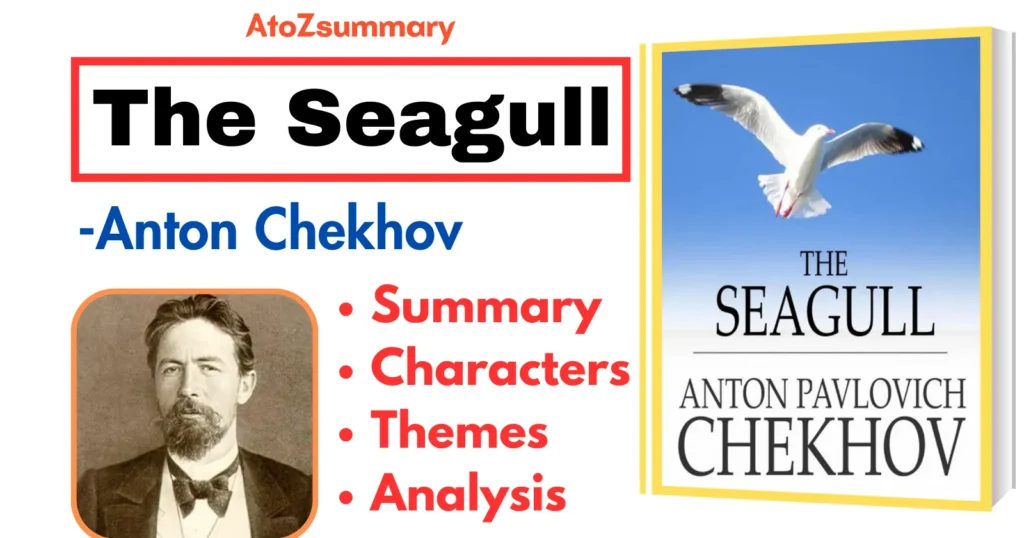
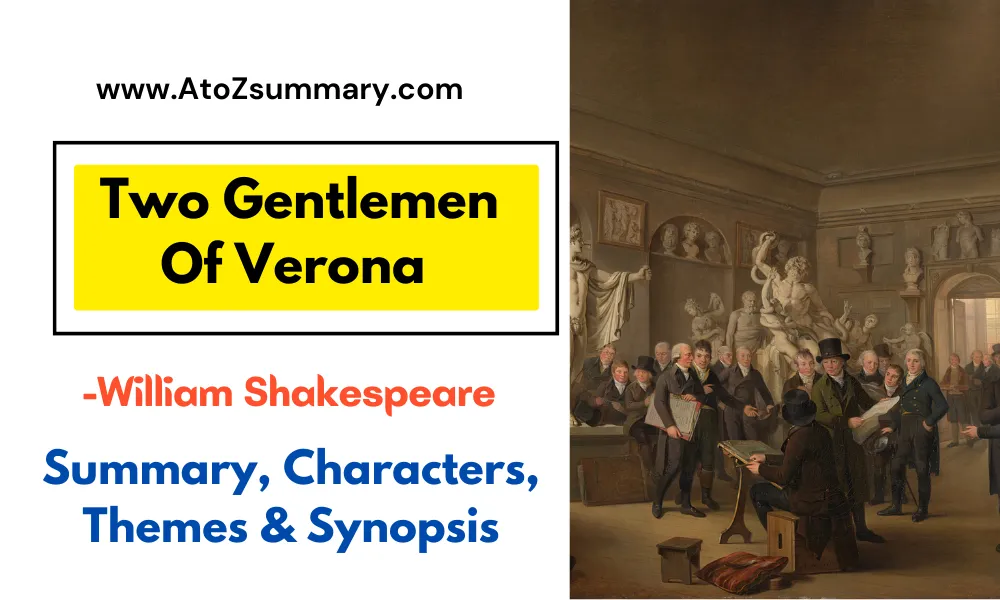
![Little Women Summary,Themes,Characters & Synopsis [Louisa May Alcott] Little Women Summary,Themes,Characters & Synopsis [Louisa May Alcott]](https://atozsummary.com/wp-content/uploads/2023/08/Little-Women-SummaryThemesCharacters-Synopsis-Louisa-May-Alcott-1024x538.webp)

